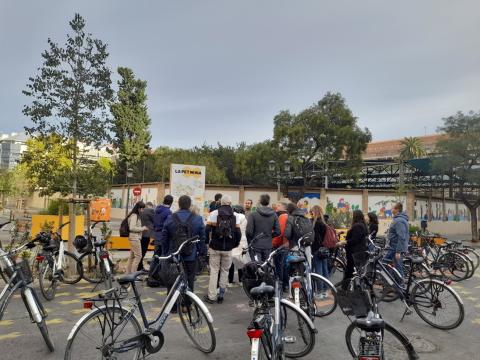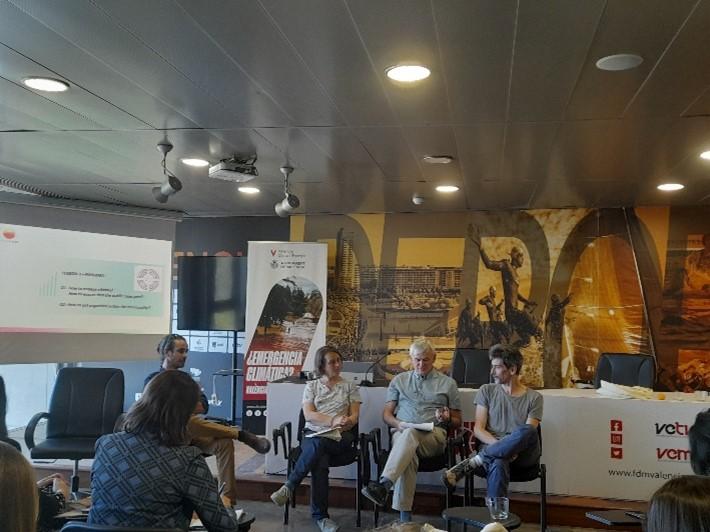FEEL Partners meet in Valencia to develop business model
Cities are looking for ways to reduce their resource consumption to increase savings, reduce carbon emissions, empower communities, and improve the lives of citizens. By engaging with citizens about the frugal city, communities recognise the benefit it can have in creating a socially just community where citizens are supported in their own innovation and business. The FEEL partners are guiding elected officials and key decision makers in implementing the Frugal City approach in cities across Europe.
The FEEL Project Partners met in Valencia for the second Thematic Event on the 7th and 8th of November to discuss the transition to the frugal city, the business model and gaining public acceptance of the initiative. The event kicked off with a kind welcome from Carlos Sanchez, the Head of Valencia Climate and Energy Agency. Carlos introduced the city to us and spoke about the progress achieved in targeting a climate neutral city by 2030.
The introduction brought us nicely into the Post-Growth Urban Planning Debate and the possibility it offers to cities. Sofia Greaves is a Post-Doctoral Researcher in the Prospera Project with the University in Vigo in Spain. Sofia proposed the idea of post-growth innovation in a city with a systematic approach to frugality instead of continual development. Innovation in the frugal city extends outside technology to cultural and institutional change to improve social lives of citizens. We cannot continue to extract resources in a linear fashion with no thought of the future.
Chris De Decker is the creator of the Low-Tech Magazine, a website that is powered solely by renewable solar energy. The site offers directions and training in low-tech solutions to everyday activities. Chris considered the question whether ‘Valencia could be run on human power alone’? Historically, factories only worked when conditions suited. For example, a factory only worked when renewable energy was generated, or global trade operated when the wind is blowing. While it is an extreme take on today’s world and sufficiency, the characteristics of frugality underpin innovation, social consideration, and the responsible use of resources.
Valencia Climate and Energy Agency, run an energy office in the city. The Energy Office, Cycling Ring along with the Superblock ‘La Petxina’ are actions within Valencia that contribute to the good practices for the project. FEEL partners visited the office and the Superblock through active travel on the cycling ring. The energy office offers citizens advise of their energy bills and how they can be reduced by implementing simple changes like energy efficient appliances, shifting patterns and social benefits. The Superblock, 'La Petxina' is a community space spanning four interconnecting routes that limits the number of cars passing, protecting schools in the area, and providing a meeting place for the residents. By choosing to cycle, the partners benefitted from learning about the actions and how they could be developed in other regions while also avoiding carbon emissions.

All partners on the FEEL project have engaged with stakeholder in their regions to discuss the frugal approach. Feedback from the stakeholders has been productive and encouraging with many asking how to make frugality appealing rather than a shock to the system. The frugal approach looks at our demand, encouraging a focus on ‘needs over wants’.
FEEL is an Interreg Europe Project funded by the European Regional Development Fund. The FEEL project aims to influence elected officials and policymakers to implement the Frugal City Concept in 8 European Cities. The project has funding of 2.02 million for the project.

